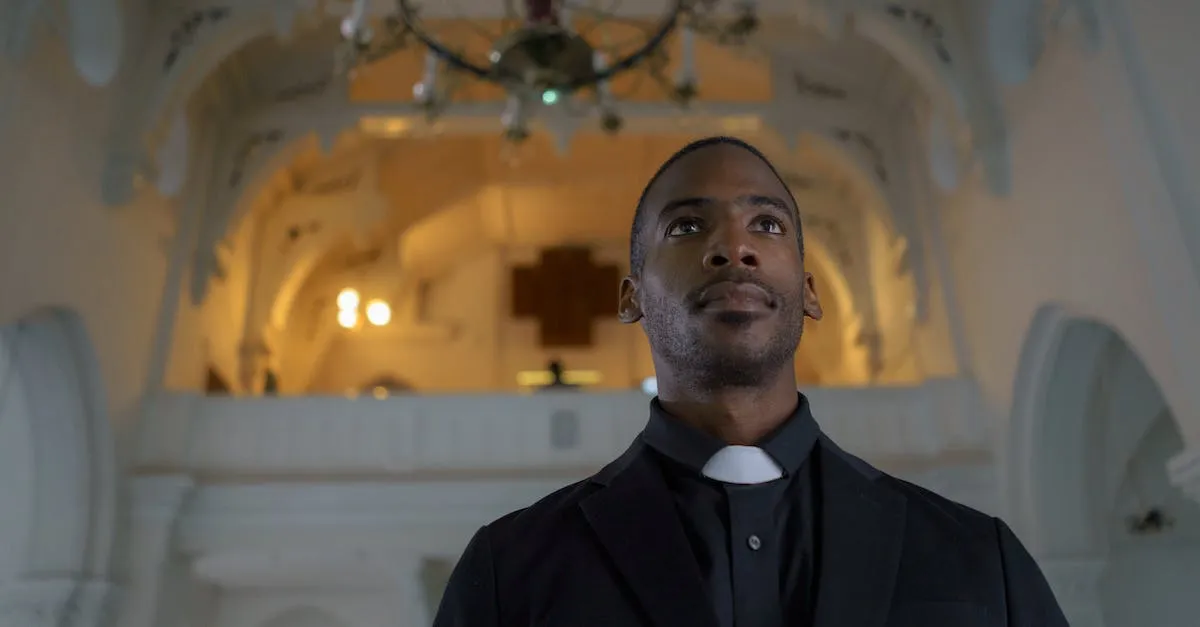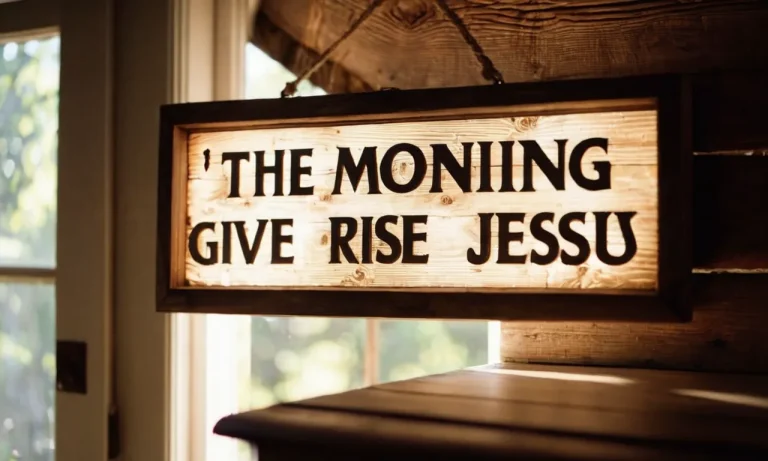The Rise Of Christian Preachers On Youtube
In an era of declining church attendance, YouTube has become a popular platform for Christian pastors and preachers to reach massive audiences online. From well-known megachurch leaders to upstart creators, Christian voices are leveraging YouTube to share sermons, Bible teachings, and commentary.
If you’re short on time, here’s a quick answer: YouTube has allowed a diverse range of Christian leaders – from mainstream to controversial – to build huge followings and shape Christian culture with sermons, vlogs, and commentary tailored for digital media.
In this approximately 3000 word article, we will provide an overview of the most influential Christian preachers on YouTube, analyze the strengths and weaknesses of this platform for ministry, and examine key factors behind the rapid growth of Christian YouTube channels.
The Most Influential Christian Preachers on YouTube
Mainstream megachurch pastors like Rick Warren, Steven Furtick
When it comes to influential Christian preachers on YouTube, it’s hard to ignore the impact of mainstream megachurch pastors like Rick Warren and Steven Furtick. These pastors have built massive online followings by delivering powerful sermons and sharing their faith in a relatable and engaging way.
With millions of subscribers and views on their channels, they have become a source of inspiration and guidance for many Christians around the world.
Rick Warren, the founding pastor of Saddleback Church, has been using YouTube as a platform to reach a wider audience and spread his message of purpose-driven living. His channel offers a variety of content, including sermons, interviews, and practical advice for living a fulfilling Christian life.
With his warm and relatable style, Warren has captivated viewers and motivated them to live with a sense of purpose.
Steven Furtick, the lead pastor of Elevation Church, has also made a significant impact on YouTube. Known for his dynamic preaching style and powerful messages, Furtick has attracted a large following of young Christians seeking spiritual guidance.
His videos often tackle relevant topics and provide practical insights for navigating life’s challenges. Furtick’s ability to connect with his audience has made him a popular figure in the Christian YouTube community.
Fast-growing younger preachers like Paul Washer, Francis Chan
While mainstream megachurch pastors have a significant presence on YouTube, there are also fast-growing younger preachers who are making a name for themselves on the platform. Pastors like Paul Washer and Francis Chan have garnered a loyal following by delivering passionate and thought-provoking sermons.
Paul Washer, known for his bold and uncompromising preaching, has gained a reputation for his powerful messages on repentance and holiness. His YouTube channel features sermons that challenge believers to live out their faith authentically and passionately.
Washer’s fervent delivery and deep theological insights have resonated with many Christians who are hungry for a deeper understanding of their faith.
Francis Chan, a former megachurch pastor turned itinerant preacher, has also found success on YouTube. His channel offers a mix of sermons, interviews, and personal reflections on the Christian life. Chan’s humility and authenticity have endeared him to his audience, and his messages often challenge believers to live with radical obedience to Christ.
Conservative commentary channels like Allie Beth Stuckey
In addition to pastors and preachers, there are also conservative commentary channels on YouTube that tackle issues from a Christian perspective. One notable example is Allie Beth Stuckey, whose channel has gained popularity for her insightful commentary on culture, politics, and faith.
Allie Beth Stuckey, a conservative commentator and podcast host, uses her YouTube channel to engage with viewers on topics that are important to Christians. With a mix of humor and intellect, Stuckey offers a fresh perspective on current events and challenges the prevailing cultural narratives.
Her channel has become a go-to resource for Christians who are looking for thoughtful analysis and commentary from a biblical worldview.
Benefits and Drawbacks of YouTube for Christian Ministry
YouTube has become a powerful platform for Christian preachers to reach new and younger audiences, but it also comes with its own set of benefits and drawbacks. In this article, we will explore the advantages and challenges that Christian ministries face when utilizing YouTube as a means of spreading their message.
Accessibility to new and younger audiences
One of the biggest benefits of using YouTube for Christian ministry is the accessibility it provides to new and younger audiences. With over 2 billion monthly active users, YouTube offers a vast potential audience for preachers to connect with.
Young people, in particular, are more likely to engage with video content, making YouTube an ideal platform to reach out to them.
Through YouTube, Christian preachers can create engaging and visually appealing videos that captivate the attention of viewers. They can deliver sermons, share testimonies, and provide biblical teachings in a format that is easily accessible and shareable.
This allows them to spread the message of God’s love and salvation to a wider audience than ever before.
Production quality and engagement optimized for video
YouTube’s platform is designed to optimize production quality and engagement for video content. This means that Christian preachers can take advantage of the various features offered by YouTube to enhance the quality and effectiveness of their ministry videos.
YouTube provides tools for editing, adding captions, and incorporating visual effects to make videos more engaging and professional-looking. The platform also offers analytics that allow preachers to track the performance of their videos and gain insights into their audience’s preferences and behaviors.
By utilizing these features, Christian preachers can create high-quality videos that capture the attention and interest of viewers, ultimately leading to a greater impact on their ministry.
Comment section debates and distractions
While YouTube offers a platform for Christian preachers to engage with their audience, it also comes with its fair share of challenges. One of these challenges is the comment section, where debates and distractions can arise.
YouTube’s comment section can be a double-edged sword. On one hand, it provides a space for viewers to express their thoughts, ask questions, and engage in meaningful discussions. On the other hand, it can also become a breeding ground for negativity, trolls, and debates that distract from the main message of the ministry.
Christian preachers must carefully monitor and moderate the comment section to ensure that it remains a positive and constructive space for dialogue. This requires time and effort but can lead to fruitful interactions and the building of a supportive community within the YouTube channel.
Less personal pastoral ministry
While YouTube allows Christian preachers to reach a larger audience, it also comes with a drawback – the lack of personal pastoral ministry. In traditional church settings, pastors have the opportunity to personally interact with their congregation, provide one-on-one counseling, and offer pastoral care.
On YouTube, the personal touch of pastoral ministry may be lost, as the preacher is addressing a virtual congregation. While videos can still offer comfort and guidance, they cannot fully replace the personal connection that comes from face-to-face interactions.
Christian preachers must find ways to supplement their online ministry with personal interactions, such as responding to comments, hosting live Q&A sessions, or even organizing meetups or conferences.
These efforts help bridge the gap between the virtual and physical world, allowing for a more holistic approach to ministry.
Growth Factors for Christian YouTube Channels
Christian preachers on YouTube have experienced a significant rise in popularity in recent years. This can be attributed to several growth factors that have propelled their channels to success. Let’s take a closer look at some of these factors:
Social media cross-promotion
One of the key reasons for the growth of Christian YouTube channels is the effective use of social media cross-promotion. Many preachers have leveraged platforms like Facebook, Instagram, and Twitter to promote their YouTube content.
By sharing snippets, teasers, or links to their videos on these platforms, they are able to attract a wider audience and drive traffic to their YouTube channels. This cross-promotion strategy allows them to reach people who may not have found their content otherwise.
Targeting spirituality interests of YouTube users
Christian preachers have tapped into the spirituality interests of YouTube users, which has contributed to the growth of their channels. They create content that addresses common spiritual and religious questions, offers guidance, and provides a sense of community for viewers.
By catering to the specific needs and interests of their target audience, these preachers are able to connect with viewers on a deeper level, fostering a loyal following and increasing engagement.
YouTube algorithm rewards regular posting
The YouTube algorithm plays a crucial role in determining the visibility and success of a channel. Christian preachers who consistently post new content on a regular basis are more likely to receive higher visibility on the platform.
The algorithm favors channels that are active and engaging, which encourages preachers to maintain a consistent posting schedule. By doing so, they increase their chances of appearing in recommended videos and gaining new subscribers.
Consumerist ‘content marketplace’ dynamics
The growth of Christian YouTube channels can also be attributed to the consumerist dynamics of the ‘content marketplace’. As more people turn to YouTube for spiritual guidance and religious content, there is a demand for diverse perspectives and teachings.
Christian preachers have capitalized on this demand by offering unique and engaging content that stands out in the crowded online space. Their ability to provide valuable insights, entertaining storytelling, and relatable experiences has helped them gain traction and grow their channels.
Conclusion
YouTube has rapidly empowered a new generation of technology-savvy Christian leaders and thinkers to reach vast audiences. While this presents immense opportunities for ministry, there are also risks of over-simplification, distraction, and a consumerist mindset.
As Christians navigate this new media environment, authentic discipleship and heart-changing community remain as important as ever.








